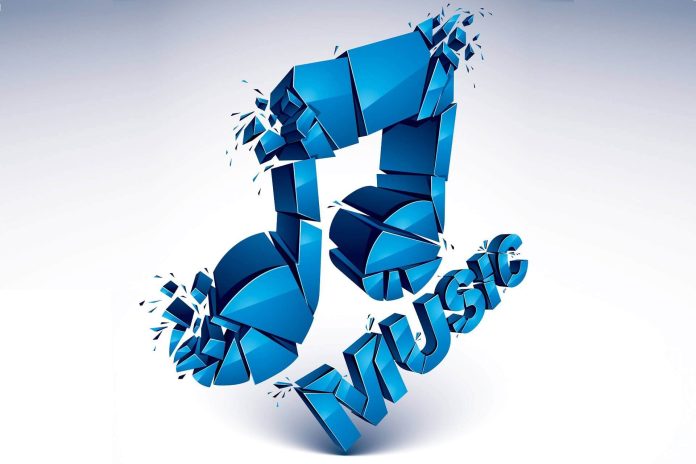Do you ever wonder what the difference is between analog and digital DJing? Turntables have been an integral part of hip-hop culture since its inception in the late 1970s, but today’s technology has shifted that paradigm significantly.
In this article, we’ll explore both analog and digital DJing to weigh out their pros and cons so that you can make an informed decision regarding your own setup. You will learn how turntable DJ setups have stood the test of time and why controller based setups are becoming more popular as well.
We hope to give you all the information needed to decide if classic vinyl turntables are still king or if modern day controllers reign supreme!
Overview of Analog DJing – What is it and How Does it Work
If you’ve ever attended a party where a DJ was spinning vinyl records, you’ve witnessed the art of analog DJing. Analog DJing involves using turntables, vinyl records, and a mixer to create a live mix of music.
The DJ’s hands-on approach to mixing allows for greater control over the tempo, dynamics, and EQ of the music. The turntable’s iconic circular platter is where the magic happens, with the DJ using their fingertips to cue up tracks, scratch, and manipulate the music on the record.
Using a DJ mixer, the DJ can adjust the levels of each track, add effects, and seamlessly transition between songs. While digital DJing has become increasingly popular, analog DJing remains a beloved art form among music enthusiasts and purists alike.
Pros & Cons of Analog DJing – Why Turntables Are Still Relevant in the Digital Age
In a world where technology is rapidly advancing, it’s important to recognize and appreciate the value of traditional methods. Analog DJing, specifically using turntables, still holds a place in the digital age for many music enthusiasts.
One major pro of analog DJing is the authentic sound and feel it produces. Vinyl records have a unique warmth and depth that digital formats simply can’t replicate.
Additionally, the physical act of manipulating vinyl provides a tangible connection between the DJ and the music.
However, there are also some cons to analog DJing, such as the expense and upkeep of equipment, as well as the need for physical storage space.
Ultimately, the decision to go analog or digital comes down to personal preference and the desired sound and experience.
Overview of Digital DJing – What is it and How Does it Work
Digital DJing is an innovative way of mixing and creating music that has only gained prominence in the last decade. It involves using digital tracks, software, and hardware to create a seamless flow of music between one track and another.
The idea of digital DJing is to use technology to seamlessly synchronize multiple tracks, cut and paste different segments of each track, and create a unique sound that is tailored to your specific style.
With the right gear and software, digital DJs can sample, loop and edit their tracks on the fly to produce an instant and dynamic performance.
Pros & Cons of Digital DJing – The Benefits and Drawbacks of Controllers
One of the most significant benefits of using controllers is their portability and ease of use in any environment.
Additionally, DJs can easily access a wide range of features, effects, and functionalities using a single device.
However, controllers also have their drawbacks. One of the most significant challenges is the lack of tactile feedback, which can make it difficult for DJs to access buttons and knobs in low light environments.
Furthermore, controllers require a level of technical knowledge to operate effectively, which can be daunting for beginners.
Despite these challenges, controllers remain a popular choice for DJs who are looking for new and exciting ways to express their creativity.
Choosing the Right Setup for Your Needs – Tips for Going Analog or Digital
As technology advances, the decision between going analog or digital can become overwhelming. Knowing what setup is right for you and your needs can be a challenge.
Analog has a classic, warm sound, while digital allows for flexibility and convenience. When deciding on which to choose, it’s important to consider what kind of music you will be creating, how much control you want over your sound and your budget.
If you’re looking for a traditional studio setup, go analog. However, if you’re more interested in creating music on the go, digital might be the way to go.
Regardless of your decision, both options offer unique benefits, and with the right setup, you’ll be able to produce great music that meets your individual needs.
Tips on buying the equipment for analog or digital DJing
Whether you are a DJ who prefers traditional analog turntables or modern digital equipment, having the right gear can make all the difference in the quality and success of your performances.
When it comes to buying equipment, it’s important to do your research and invest in high-quality products that suit your style and preferences.
For analog DJs, this might mean investing in a high-end turntable with a durable tonearm and precision motor, while digital DJs might prioritize software compatibility and controller customization.
There are lots of options available when it comes to looking at controllers and turntables for sale, so make sure to thoroughly research the market before making the final decision.
Other Technical Reviews:- Reviews












